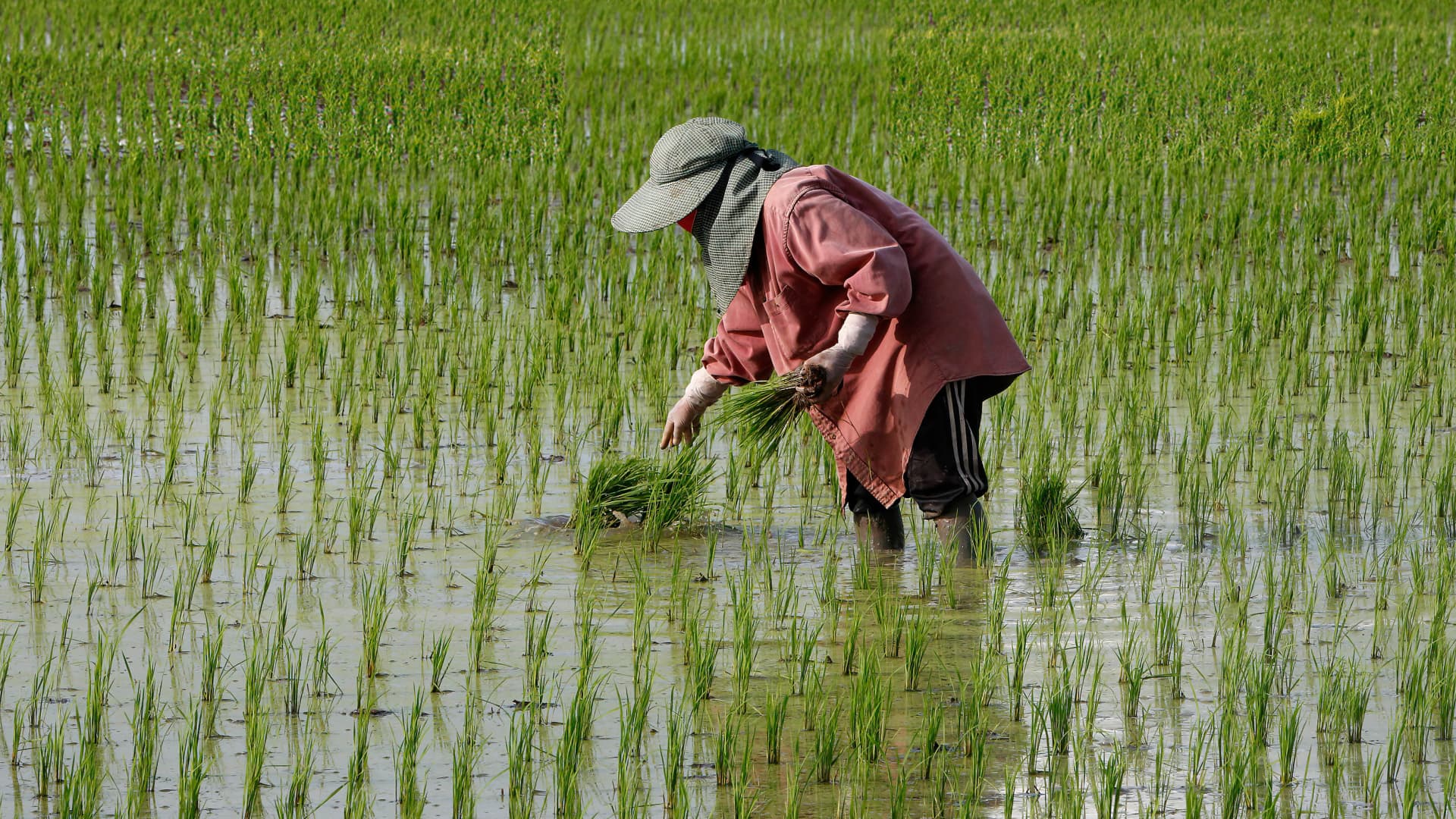A farmer in Nakhon Sawan province, north of Bangkok, is seen planting rice sprouts on her rice field.
Image: Sopa Images | Lightrocket | Getty Images
Thailand, the second-largest exporter of rice globally, is promoting a reduction in rice planting to conserve water. This move could further disrupt rice markets following India’s export ban.
Due to a decrease in rainfall, Thailand is experiencing water scarcity. The Office of the National Water Resources (ONWR) has urged farmers to switch to crops that require less water and have shorter growing cycles in order to save water for consumption.
“The cumulative rainfall is about 40% below normal, putting us at high risk of a water shortage,” said Surasri Kidtimonton, the secretary-general of the ONWR, in a statement released by Thailand’s National Water Administration.
Kidtimonton emphasized the need to focus on water for consumption and cultivation, specifically for perennial crops, which do not need to be replanted every year, unlike rice.
Rice cultivation requires an average of 2,500 liters of water per kilogram of rough rice produced. In comparison, alternative crops like millets only need between 650 to 1,200 liters of water for the same yield.
India recently implemented a ban on the export of non-basmati white rice to ensure sufficient availability in domestic markets. As the leading rice exporter, accounting for 40% of global rice trade, India’s ban is expected to have a significant impact.
“If rice production in Thailand decreases significantly year on year, there is potential for further increases in global rice prices,” warned Oscar Tjakra, senior analyst at Rabobank, in an interview with CNBC.
However, it remains uncertain whether Thai farmers will comply with the directive to reduce rice planting, explained Tjakra. “Given the current high global rice export prices, Thai farmers may still opt to plant rice,” he added.
Rice prices are already at their highest level in a decade, partly due to limited supplies after other major grains became more expensive following Russia’s invasion of Ukraine in February 2022.
“Thailand has frequently promoted water conservation, but it has had minimal impact due to the lack of a developed water rights system,” noted Jeremy Zwinger, CEO of The Rice Trader, in an email interview with CNBC.
Denial of responsibility! VigourTimes is an automatic aggregator of Global media. In each content, the hyperlink to the primary source is specified. All trademarks belong to their rightful owners, and all materials to their authors. For any complaint, please reach us at – [email protected]. We will take necessary action within 24 hours.


